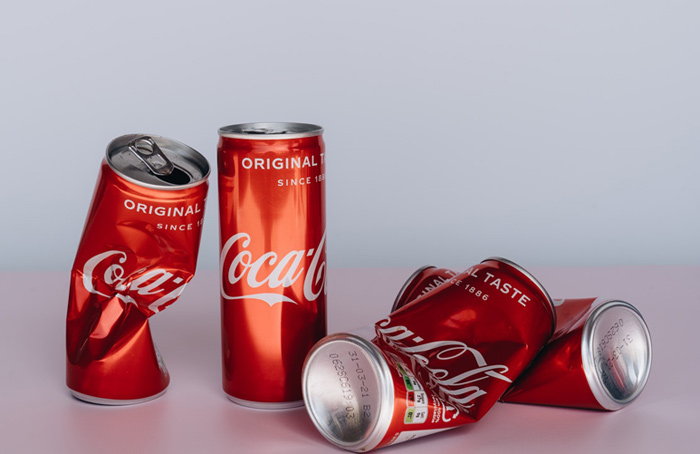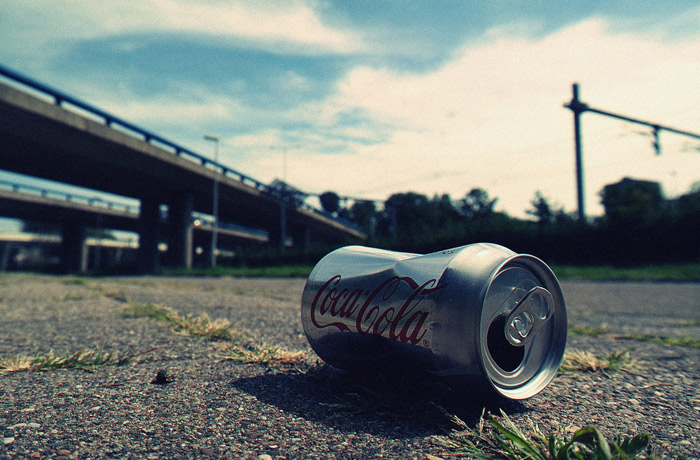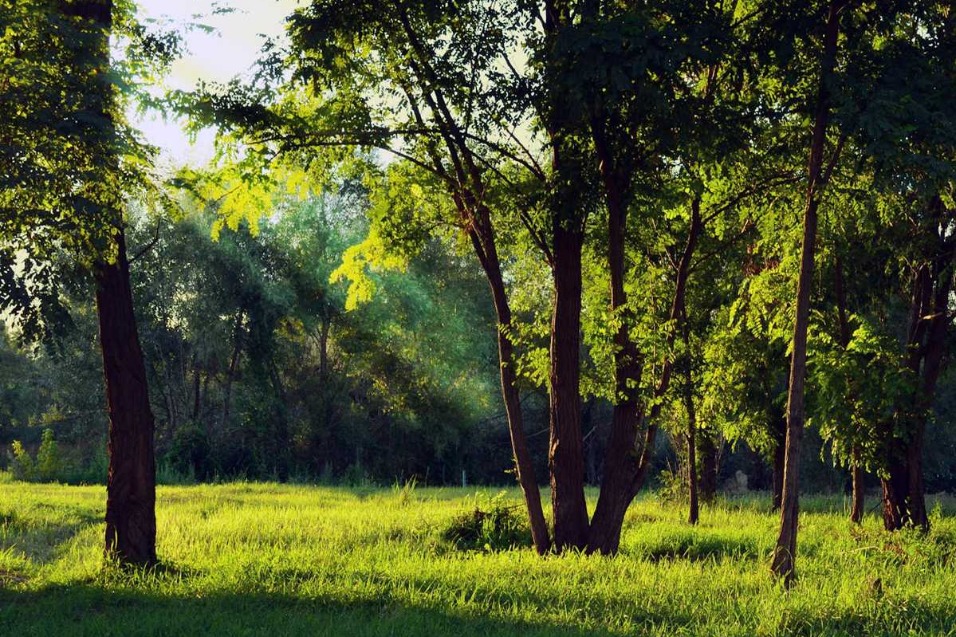可口可樂、百事、雀巢連續三年位列全球塑料污染源前三 Coca-Cola, Pepsi and Nestlé named top plastic polluters for third year in a row
中國日報網 2020-12-08 14:27

環保組織“擺脫塑縛”的年度審計結果顯示,可口可樂連續第三年成為世界最大塑料污染源,百事可樂和雀巢緊隨其后。這些飲料巨頭被指責在減少塑料污染上毫無進展,盡管他們一直宣稱自己正在積極解決。

Coca-Cola, PepsiCo and Nestlé have been accused of “zero progress” on reducing plastic waste, after being named the world’s top plastic polluters for the third year in a row.
連續第三年成為世界最大塑料污染源的可口可樂、百事可樂和雀巢被指在減少塑料污染上“零進展”。
Coca-Cola was ranked the world’s No 1 plastic polluter by Break Free From Plastic in its annual audit, after its beverage bottles were the most frequently found discarded on beaches, rivers, parks and other litter sites in 51 of 55 nations surveyed. Last year it was the most frequently littered bottle in 37 countries, out of 51 surveyed.
“擺脫塑縛”組織的年度審計結果顯示,可口可樂是世界最大的塑料污染源。該組織調查了55個國家和地區,在其中51個國家和地區的海灘、河流、公園和其他場所發現得最多的垃圾就是可口可樂的廢棄飲料瓶。去年該組織調查了51個國家和地區,其中37個國家和地區最常見的垃圾是可口可樂飲料瓶。
It was found to be worse than PepsiCo and Nestlé combined: Coca-Cola branding was found on 13,834 pieces of plastic, with PepsiCo branding on 5,155 and Nestlé branding on 8,633.
可口可樂的塑料污染比百事可樂和雀巢加在一起還要糟:在13834片垃圾上發現了可口可樂的標志,在5155片垃圾上發現了百事可樂的標志,在8633片垃圾上發現了雀巢的標志。
The annual audit, undertaken by 15,000 volunteers around the world, identifies the largest number of plastic products from global brands found in the highest number of countries. This year they collected 346,494 pieces of plastic waste, 63% of which was marked clearly with a consumer brand.
由世界各地的15000名志愿者開展的年度審計活動識別出哪些在最多國家出現的國際品牌的塑料垃圾數量最大。今年他們收集了34萬6494片垃圾,其中有63%都帶有明顯的消費品牌標識。
Coca-Cola came under fire from environmental campaigners earlier this year when it announced it would not abandon plastic bottles, saying they were popular with customers. In March, Coca-Cola, PepsiCo, Nestlé and Unilever were found to be responsible for half a million tonnes of plastic pollution in six developing countries each year in a survey.
今年早些時候,可口可樂因為宣布不會棄用塑料瓶而遭到了環保人士的炮轟。可口可樂的理由是塑料瓶很受顧客的歡迎。今年三月的一項調查發現,可口可樂、百事可樂、雀巢和聯合利華每年在六個發展中國家產生50萬噸塑料垃圾。
"The world’s top polluting corporations claim to be working hard to solve plastic pollution, but instead they are continuing to pump out harmful single-use plastic packaging,” said Emma Priestland, Break Free From Plastic’s global campaign coordinator.
“擺脫塑縛”組織的全球運動協調員艾瑪·普瑞思特蘭德稱:“在全球造成最多污染的這些公司聲稱在努力解決塑料污染問題,但實際上他們卻在繼續生產有害的一次性塑料包裝。”
Priestland said the only way to halt the growing global tide of plastic litter was to stop production, phase out single use and implement reuse systems.
普瑞思特蘭德說,抵擋全球塑料污染潮的唯一方法就是停止生產、逐步淘汰一次性塑料用品以及推行回收利用系統。
"Coca-Cola, PepsiCo, and Nestlé should be leading the way in finding real solutions to reinvent how they deliver their products,” she said.
她說:“可口可樂、百事可樂和雀巢應該帶頭研發能真正解決塑料污染問題的產品新包裝。”
Up to 91% of all the plastic waste ever generated has not been recycled and ended up being incinerated, in landfill or in the natural environment, according to a 2017 study.
根據2017年的一項研究,過去產出的所有塑料污染物中有多達91%沒有被回收,最后都被焚化、扔進垃圾填埋場或自然環境中。

This year’s global audit of branded plastic waste revealed that single-use sachets, which are used to sell small volumes of products such as ketchup, coffee and shampoo, were the most commonly found type of item, followed by cigarette butts, then plastic bottles.
今年的全球品牌塑料污染審計活動揭示,用來出售小劑量番茄醬、咖啡和洗發水等產品的一次性小包裝袋是最常見的塑料污染物,其次是香煙頭,然后是塑料瓶。
sachet[s???e?]: n. 香囊;小袋
Simon Mbata, national coordinator of the South African Waste Pickers Association, said: “The majority of plastic we come across cannot be recycled. We find it everywhere, in our waste stream, on our land. When it is buried, it contaminates our soil. Whatever cannot be recycled must not be produced.”
南非拾荒者協會的全國協調員西蒙·馬塔說:“我們撿到的大部分塑料都不能被回收。我們到處都可以見到這樣的垃圾,在我們的廢物流中,在我們的土地上。當種垃圾被埋起來后,就會污染我們的土地。任何不能被回收的東西都不應該被生產。”
Coca-Cola said it was working to address packaging waste, in partnership with others, and disputed the claim that it was making no progress.
可口可樂表示,正在與其他機構合作解決包裝污染問題,并駁斥了“零進展”的指控。
"Globally, we have a commitment to get every bottle back by 2030, so that none of it ends up as litter or in the oceans, and the plastic can be recycled into new bottles,” a spokesperson said. “Bottles with 100% recycled plastic are now available in 18 markets around the world, and this is continually growing.”
可口可樂的發言人稱:“我們向全球承諾,到2030年會回收所有飲料瓶,不讓它們成為垃圾或進入海洋,然后將回收的塑料制成新飲料瓶。目前在世界各地的18個市場上可以買到百分百可回收的塑料瓶飲料,而且這個比例正在持續增加。”
The spokesperson said Coca-Cola had also reduced plastic use in secondary packaging, and that globally “more than 20% of our portfolio comes in refillable or fountain packaging”.
這名發言人表示,可口可樂還減少了二次包裝的塑料使用,全球“超20%的整裝產品都采用可重復使用的包裝盒或噴泉機”。
A spokesperson for PepsiCo said the company was taking action to tackle packaging through “partnership, innovation and investments”. They said it has set plastic reduction goals “including decreasing virgin plastic in our beverage business by 35% by 2025”, and was also “growing refill and reuse through businesses like SodaStream and SodaStream Professional, which we expect will avoid 67bn single-use plastic bottles through 2025”.
百事可樂的發言人表示,該公司正在采取行動,通過“合作、創新和投資”來解決包裝污染問題。他們聲稱已經設定了減少塑料污染的目標,“包括在2025年前將飲料業務中的全新塑料包裝減少35%”,并“通過SodaStream和SodaStream Professional這樣的氣泡水機實現更多的飲料補充和塑料瓶再利用,我們預期到2025年將減少670億個一次性塑料瓶的使用”。
A statement from Nestlé said the company was making “meaningful progress” in sustainable packaging, although it recognised more was needed: “We are intensifying our actions to make 100% of our packaging recyclable or reusable by 2025 and to reduce our use of virgin plastics by one-third in the same period. So far, 87% of our total packaging and 66% of our plastic packaging is recyclable or reusable.”
雀巢在一份聲明中稱,雀巢在可持續包裝上正取得“重要進展”,不過雀巢也意識到還不夠:“我們正在加強行動,爭取在2025年前實現所有的包裝可回收或可重復使用,并在此期間將全新塑料的使用量降低三分之一。迄今為止,我們所有包裝的87%和塑料包裝的66%是可回收或可重復使用的。”
英文來源:衛報
翻譯&編輯:丹妮

















 英語點津微信
英語點津微信 雙語小程序
雙語小程序